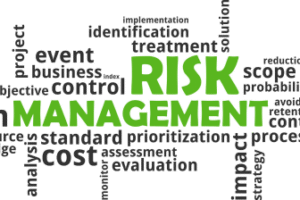
How to Identify the Best Risk Management Courses in India?
How to Identify the Best Risk Management Courses in India?
Every industry faces risks. A financial services company must manage market volatility. A manufacturer may struggle with supply chain failures. A technology firm has to tackle cybercrime. Managing such risks to support sustainability and growth is essential. Consequently, demand for professionals trained in risk management has expanded rapidly in India.
With a growing number of institutions offering postgraduate degrees, diplomas, and certifications, candidates often wonder how to identify the best risk management courses in India. The answer lies in assessing the depth of the curriculum, faculty expertise, industry relevance, and placement outcomes.
Why Risk Management Is a Career of the Future
Before evaluating programmes, it is important to understand why risk management has become a promising career choice. Businesses have undergone major changes due to digitalisation, globalisation, and regulatory reforms. Risks are no longer limited to finance. Companies must address operational, environmental, cyber, and ESG-related risks that once attracted little attention.
This trend is highly visible in India. Candidates completing recognised risk management courses are in demand across fintech, start-ups, insurance, and consulting. The evolving economy and regulatory environment have increased the need for skilled professionals who can handle uncertainty effectively.
Core Elements of the Best Risk Management Programmes in India
When exploring options, candidates should evaluate programmes based on key aspects:
Curriculum Relevant to Industry: The curriculum forms the backbone of any programme. The best courses go beyond financial risks and cover cyber threats, operational risks, ESG, climate risks, and strategic concerns.
Look for programmes that balance theory with practice. Case studies, live projects, and simulations allow students to apply knowledge to real-world challenges. Employers particularly value these practical skills.
Experienced Faculty and Industry Collaboration: The presence of experienced faculty and industry experts adds credibility. Strong programmes often include instructors with years of practical exposure.
Partnerships with consulting firms, multinational corporations, and financial institutions ensure that the curriculum stays relevant. Such collaborations train students to think critically, adapt to uncertainty, and manage risks in dynamic business environments.
Career Opportunities and Placement Support: The true strength of a course lies in the opportunities it creates for graduates. Top programmes maintain corporate networks and strong alumni connections. Employers prefer hiring candidates from institutes known for producing industry-ready professionals.
Candidates should review placement statistics, corporate tie-ups, and alumni experiences before choosing a programme. This ensures that investment in education translates into strong career prospects.
Reputation and Institutional Recognition: A programme’s reputation is another deciding factor. Established risk management institutes with proven track records attract attention from recruiters and students.
While well-known organisations like the Indian Institute of Risk Management and the Institute of Risk Management are widely respected, newer specialised institutions also gain recognition with innovative, industry-driven curricula.
Spotlight on GRMI’s PGDRM Programme: Among specialised institutions, the Global Risk Management Institute (GRMI) has earned recognition for its forward-looking curriculum. Its flagship Post Graduate Diploma in Risk Management (PGDRM) is designed to prepare students for the complexity of today’s business environment.
Why PGDRM Stands Out
- Comprehensive Coverage: The programme addresses over 40 risk domains, including compliance, reputational, ESG, technological, and operational risks.
- Industry-Aligned Curriculum: Designed with experts from leading consulting firms, ensuring the material meets global standards.
- Hands-on Learning: Case studies, simulations, and live projects build confidence to handle high-risk scenarios early in careers.
- Global and Local Relevance: The programme bridges Indian and international risk contexts, preparing graduates for domestic and overseas roles.
- Placement Access: Corporate connections across finance, consulting, technology, and start-ups provide direct placement opportunities.
GRMI’s PGDRM is more than an academic qualification. It develops leadership potential and equips students to thrive in uncertain environments, making it one of the most sought-after programmes in India.
Career Paths for Risk Management Professionals
The growing demand for skilled professionals highlights the strategic importance of this field. Graduates can pursue roles such as:
- Risk Analyst
- Credit Risk Manager
- Market Risk Specialist
- ESG Risk Consultant
- Operational Risk Advisor
- Chief Risk Officer (CRO)
Opportunities exist across banking, insurance, consulting, fintech, manufacturing, and IT start-ups. The variety of roles makes risk management one of the most rewarding career paths today.
Checklist for Choosing the Right Programme
When faced with multiple options, candidates can use this checklist to make an informed choice:
- Curriculum: Does it cover diverse risks beyond finance?
- Practical Exposure: Are internships, projects, and simulations included?
- Faculty and Mentorship: Are experienced professionals part of the teaching team?
- Placement Support: Does the institute have strong employer connections?
- Reputation: Is the programme respected by recruiters and industry leaders?
This framework helps identify courses that align with professional ambitions and industry requirements.
Conclusion
Risk management is no longer a specialised function; it is central to business operations. Rising uncertainty in markets, supply chains, and global economies ensures continuous demand for trained professionals.
India offers strong options, including established institutions and innovative newer schools. Among them, GRMI has distinguished itself with its comprehensive PGDRM programme. By integrating industry collaboration, practical learning, and international exposure, GRMI sets a new benchmark for risk management education in India.
The right choice lies in selecting a programme that provides academic knowledge while preparing candidates for real-world challenges. GRMI’s PGDRM stands as one of the top risk management courses in India today.
FAQ’s
Q1: Why should I enrol in an Indian risk management course?
Ans: Indian risk management courses blend local business relevance with international standards. Demand is rising for consulting, fintech, and financial services.
Q2: What abilities will a top risk management program impart to me?
Ans: You will get knowledge on how to control operational, financial, cyber, & ESG risks. Included are tools and practical decision-making skills.
Q3: Which is better for risk management, a diploma or a postgraduate degree?
Ans: Your career stage will determine this. Shorter certifications are appropriate for working professionals looking to upskill, whereas diplomas are best for recent graduates.
Q4: After taking a risk management course, what professional alternatives become available?
Ans: Risk analyst, market risk specialist, ESG consultant, operational risk manager, & senior leadership roles such as CRO are among the roles.
Q5: Why should I think about taking risk management courses at GRMI?
Ans: With case studies, hands-on learning, and robust placement assistance, GRMI provides specialist, industry-aligned programs. Students are prepared for risky responsibilities in India and abroad.
You may also like

Best Short Term Courses in IT for Freshers

What is the Best Course in Risk Management in India?


